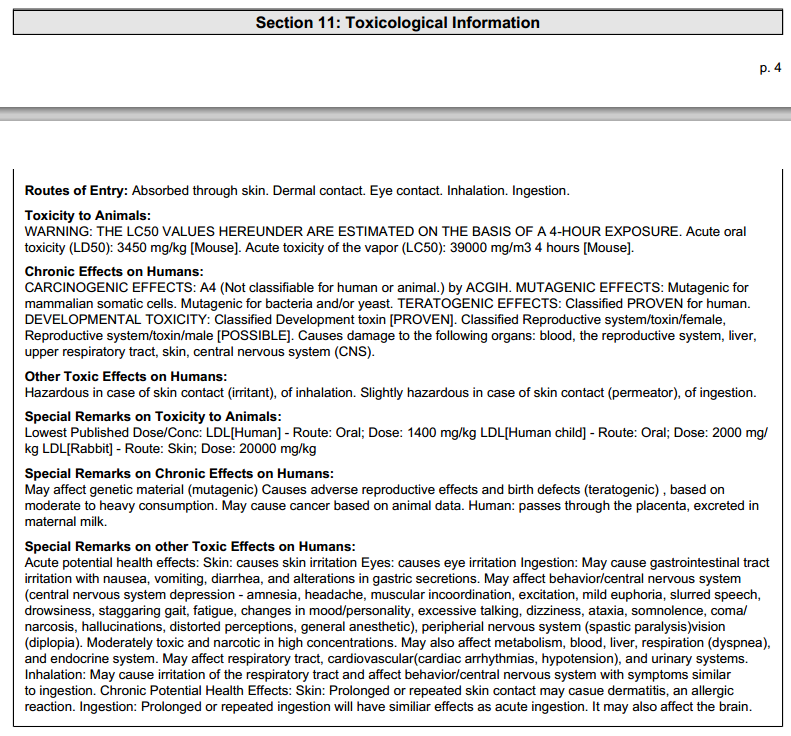正文
先看几个词的定义:
| toxic: (有毒物质)a toxic substance, usually used in the plural: toxics flowed from the factory. toxin: (生物毒素)a poisonous substance that is a specific product of the metabolic activities of a living organism. toxicant: (化学毒物)a toxic agent, usually one produced by human-made activity, such as pesticide. Although strictly speaking toxin should be used only for biologically produced substances and not as a synonym for toxic or toxicant, popular usage interchanges the terms. A toxic agent is anything that can produce an adverse biological effect. |
 |
一般来说,毒性(toxicity)是物质能够对生物(人或动物等)造成损害的属性。 慢性毒性是指一次或短期接触/摄入能够产生的有害效应。中期毒性是指接触一年以后可能产生的有害效应。长期毒性是指多次或长期接触毒物后引起的有害效应。
我们说一种物质有毒,指的是该物质对生物(人,动物,细菌,植物)的结构单位(如细胞,器官)产生损害以致妨碍它的功能等有害的后果。归根到底,这些有害作用都是通过分子经过生物化学反应实现的。
注意几个关键点:(1)同一种物质对不同的生物效果不同。(2)毒性与剂量相关。(3)毒性大小与接触途径有关(口服,皮肤吸收,呼吸摄入等)。
急性毒性:一般来说,致死,刺激皮肤,眼睛,口腔粘膜都是急性中毒的结果。
慢性毒性:致癌性(carcinogenic),致发育畸形(teratogenic), 致基因突变(mutagenic), 肝毒性(hepatotoxic), 肾毒性(nephrotoxic) 都可归为慢性毒性。
看看下面酒精(乙醇)的 MSDS (material safety data sheet), 看看都列出了哪些毒性?

评论
目前还没有任何评论
登录后才可评论.




